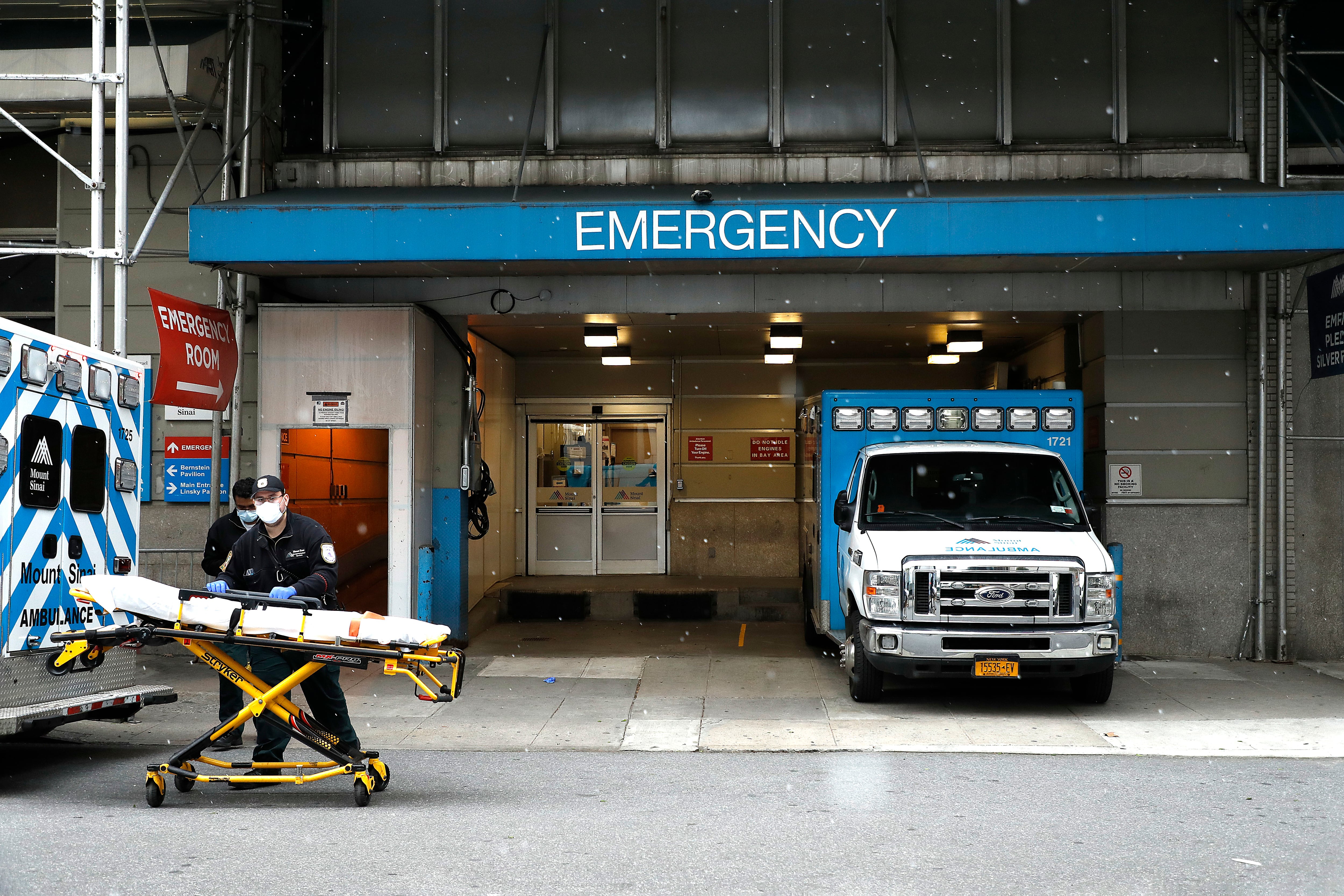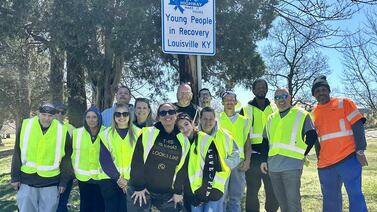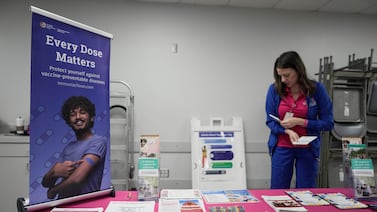Public health, explained: Sign up to receive Healthbeat’s free New York City newsletter here.
With New York City on the brink of losing two hospitals, city council members pressed health and hospital leaders on the local impacts of the closures during an oversight hearing on Tuesday.
In Manhattan, the New York State Department of Health conditionally approved this summer the closure of Mount Sinai Beth Israel. In Brooklyn, the state proposed earlier this year the closure of SUNY’s University Hospital at Downstate — which houses the borough’s only kidney transplant program — although state lawmakers postponed the decision until at least next year.
During the hearing, city council members expressed frustration with the closure processes, voicing concerns about a lack of transparency, as well as insufficient community input.
“The fact that we’re asking these questions at the end stage, as opposed to the beginning stage, of when this process was started is really a problem,” said Lynn Schulman, a council member who chairs the health committee and represents parts of Queens.
Mercedes Narcisse, a council member who chairs the hospitals committee and represents parts of southeast Brooklyn, described SUNY Downstate as a “lifeline for our community.”
“This closure will mean that Brooklyn loses yet another critical health care resource,” said Narcisse, a registered nurse who recalled rallying for increased funding at the hospital early in her career.
Public Advocate Jumaane Williams — who noted that his own primary care physician is from SUNY Downstate — expressed alarm about the hospital’s potential closure, as did state Sen. Zellnor Myrie, who emphasized that the hospital’s loss would exacerbate stark health inequities in his Central Brooklyn district.
Myrie, a mayoral candidate, stressed that his constituents deserved access to better care.
“We should have world-class health care services just like everybody else, period,” he said. “We hate having to come to the state and beg every year. Let’s make the real investment up front. Let’s have a world class women’s and children’s hospital in the center of the maternal health crisis. Let’s continue to provide kidney transplant services to a constituency that needs it desperately.”
Narcisse, Schulman and other council members pressed representatives of the city Department of Health and Mental Hygiene and NYC Health + Hospitals, the municipal health care system, on what the closures would mean for residents — and the extent to which the city had been involved in closure discussions.
Dr. Michelle Morse, the city’s interim health commissioner and chief medical officer, acknowledged witnessing firsthand, as a physician, the impact of hospital closures, particularly on marginalized neighborhoods.
The city Health Department plays a role in ensuring a “more accountable and equitable health care system,” she said. But ultimately, she testified, it is the state’s responsibility to regulate hospitals, and the state Health Department is not required to consult with the city on a hospital closure.
“We need to change that,” Schulman said. “We’re going to try to work on that, because that’s inappropriate. That’s not going to fly.”
Dr. Laura Iavicoli, chief medical officer at Elmhurst Hospital in Queens, repeatedly assured council members that NYC Health + Hospitals would be able to accommodate increased demand for care.
“No matter what the fallout from a hospital closing, we are here to serve. We have done it before. We have stood up. We have met the challenge in Covid, and that is what we’re here to do,” she said.
State Sen. Gustavo Rivera, Assemblymember Jo Anne Simon and other state lawmakers voiced concerns about the proposed closures and urged Gov. Kathy Hochul to sign the Local Input in Community Healthcare Act, which passed the state Senate and Assembly earlier this year. The bill would require public notice and community involvement when a hospital seeks to close entirely or to close a unit that provides maternity, mental health, or substance use care.
During the public comment period of the hearing, community members, health care workers, and patient advocates stressed that the closures would reduce residents’ ability to access health care.
Mark Rubin, a nurse at the Beth Israel ICU, said the hospital’s closure would be devastating for Lower Manhattan.
The state approved Beth Israel’s closure under the conditions that Mount Sinai run a 24/7 primary and urgent care clinic for at least three months and fund an expanded emergency room at nearby Bellevue Hospital.
“For all the talk of urgent care, there’s not one of my patients in the ICU who could be treated in an urgent care setting,” Rubin said. “Hospitals are necessary. They can’t go away.”
Madeline Villalba, a medical student and member of the Commission on the Public’s Health System, a health advocacy organization, testified that hospital closures could further lengthen ambulance response times, which are at their highest levels since the start of Covid-19 pandemic.
“We say in medicine, ‘time is muscle,’ after a heart attack, or ‘time is brain,’ after a stroke, because with every minute that passes without access to treatment, more organ function is lost, and that can have catastrophic consequences to health and to life,” Villalba said. “The assumption that patients can just go to another hospital kind of fails to recognize the many circumstances where geographic proximity really matters.”
Jean Ryan, president of Disabled In Action of Metropolitan New York, a civil rights organization, testified that hospital closures particularly harm elderly people, people with disabilities, and those with limited resources.
“The threat and actuality of hospitals closing creates ripples of uncertainty, worry, and lack of medical care for employees and patients who are in their wake,” she said.
Another question loomed large for her, she said: “When the next epidemic comes to New York City, where will we go?”
Eliza Fawcett is a reporter covering public health in New York City for Healthbeat. Contact Eliza at efawcett@healthbeat.org .







